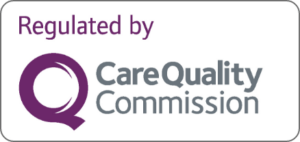The Mental Health Implications of Class A Drugs: A Comprehensive Guide

Introduction: Understanding the Stakes
The world is grappling with the far-reaching consequences of Class A drugs, not just from a legal or societal perspective but also from a deeply personal and psychological one. Substances like cocaine, heroin, LSD, and MDMA (ecstasy) are infamous for their immediate euphoric effects, but their true cost lies in the long-term damage they inflict on mental health.
This guide explores the intricate relationship between Class A drugs and mental well-being, offering evidence-based insights into their effects, harm reduction strategies, and pathways to recovery. For those seeking professional help, consider the comprehensive programs offered by Rainford Hall for addiction recovery, including their private home detox services and family interventions.
Section 1: What are Class A Drugs?
The Legal and Social Context
Class A drugs are categorised as substances with the highest potential for abuse and severe health risks under laws like the Misuse of Drugs Act 1971 in the UK and the Controlled Substances Act in the US. Possession, distribution, or manufacture of these drugs often carries severe penalties. However, the social implications of addiction often overshadow legal concerns, as users frequently face stigma, isolation, and limited access to help.
Common Class A Drugs and Their Immediate Effects
- Cocaine: A stimulant that induces feelings of energy, confidence, and euphoria but can also cause paranoia, agitation, and anxiety within hours.
- Heroin: A depressant that offers temporary relief from pain and emotional distress but is notorious for its withdrawal symptoms, including severe depression.
- LSD: Known for its hallucinogenic properties, it alters perception, causing visual and auditory distortions that can lead to confusion or panic.
- MDMA (Ecstasy): A drug that enhances feelings of empathy and sociability but leaves users vulnerable to emotional crashes and serotonin depletion post-use.
For a complete understanding of addiction’s impact, visit Rainford Hall’s rehabilitation and therapy programs.
Section 2: The Immediate Psychological Effects of Class A Drugs
Cocaine: Euphoria and Anxiety
Cocaine’s ability to deliver an intense but short-lived high makes it highly addictive. The effects include:
- Heightened confidence and focus.
- Reduced need for sleep or food.
- Paranoia or erratic behaviour during and after use.
Psychological Impact: Prolonged use can lead to paranoia, hallucinations, and psychosis, significantly disrupting daily life and relationships.
Heroin: Emotional Numbing
Heroin’s effects on the brain’s opioid receptors make it effective at dulling physical and emotional pain. However, users often face:
- Emotional detachment and apathy.
- Depression during withdrawal cycles.
- Increased anxiety over securing the next dose.
Explore how family interventions at Rainford Hall can help address the complexities of addiction.
LSD: Distorted Realities
While LSD does not typically cause physical dependency, its psychological impact can be profound:
- Intense hallucinations that blur the line between reality and imagination.
- Emotional instability, ranging from euphoria to extreme fear.
- Persistent anxiety in predisposed individuals.
MDMA: The Emotional Rollercoaster
MDMA’s effects are as dramatic as they are short-lived:
- Enhanced empathy and sociability.
- Heightened sensory experiences.
- Emotional crashes, often leading to depressive episodes.
The aftermath of drug use can be devastating, but recovery is possible. Learn about Rainford Hall’s free family workshops to rebuild trust and support loved ones in recovery.
Section 3: Long-Term Mental Health Consequences
Addiction and Dependency
Class A drugs disrupt the brain’s reward system, creating a dependency cycle:
- Dopamine Imbalances: Repeated stimulation leads to diminished natural dopamine production, making users feel unable to experience joy without the drug.
- Psychological Dependency: Over time, the user associates the drug with relief from stress or emotional pain, reinforcing addiction.
Anxiety Disorders
Stimulants like cocaine are known to exacerbate anxiety. Prolonged use may lead to:
- Generalised Anxiety Disorder (GAD).
- Panic disorders with unpredictable episodes of fear.
Depression and Emotional Instability
Drugs such as heroin and MDMA alter serotonin levels, leaving users vulnerable to:
- Persistent depressive episodes.
- Mood swings that interfere with daily functioning.
Cognitive Decline
Hallucinogens like LSD and long-term stimulant use can impair:
- Memory recall and retention.
- Problem-solving skills.
- Decision-making abilities.
If you’re concerned about cognitive impacts, explore Rainford Hall’s specialist therapy organisations for tailored recovery programs.
Section 4: Harm Reduction Strategies
Recognising the Warning Signs
Early intervention is key. Look for signs such as:
- Increased secrecy or isolation.
- Declining performance at work or school.
- Drastic mood changes or erratic behaviour.
Practical Harm Reduction Techniques
While abstinence is the safest path, harm reduction can minimise immediate risks:
- Drug Testing Kits: These help detect harmful adulterants in substances.
- Controlled Use: Setting limits on quantity and frequency.
- Hydration and Nutrition: Especially important for MDMA users to prevent overheating.
Seeking Help
Professional support is essential for long-term recovery. Rainford Hall offers services like private home detox and family therapy retreats to create a safe and supportive environment for healing.
SECTION 5: RECOVERY AND REHABILITATION
Evidence-Based Treatments
Addiction and mental health issues caused by Class A drugs require comprehensive care. Proven treatments include:
- Cognitive Behavioural Therapy (CBT): Addresses the thought patterns driving addiction.
- Medication-Assisted Treatment (MAT): Particularly effective for opioid addiction, reducing cravings and withdrawal symptoms.
- Dialectical Behaviour Therapy (DBT): Helps with emotional regulation, especially in cases of anxiety and depression.
Holistic Recovery Approaches
Holistic practices can rebuild mental and physical health:
- Mindfulness and meditation to reduce stress.
- Exercise programs to boost endorphins naturally.
- Nutritional counselling to restore bodily functions.
For a more immersive experience, consider Rainford Hall’s recovery reunions and retreats.
Aftercare and Relapse Prevention
Recovery doesn’t end with detox or therapy. Aftercare is crucial for sustained sobriety:
- Regular check-ins with therapists.
- Participation in peer support groups.
- Utilising Rainford Hall’s free client aftercare program.
SECTION 6: PREVENTION AND BROADRER IMPLICATIONS
Public Health and Education
Preventing Class A drug abuse starts with awareness:
- Education Programs: Teaching young people about the risks and mental health consequences.
- Policy Advocacy: Promoting treatment over incarceration for drug-related offenses.
Family Support Systems
Families play a vital role in prevention and recovery. Building strong support systems can:
- Reduce the likelihood of experimentation.
- Provide a safety net for those struggling with addiction.
Rainford Hall’s free family workshops can help equip families with the tools they need to support loved ones.
Conclusion: The Path Forward
The mental health implications of Class A drugs are profound, but recovery is always possible. Understanding the risks, recognising the signs, and accessing professional help can transform lives.
If you or a loved one is struggling, explore the wide range of Rainford Hall’s services designed to empower individuals and families. From Family Interventions to Enhanced 12-Step Programs, we’re here to guide you every step of the way.
Seeking Professional Help?
If you are concerned about your own drug use or suspect someone you care about might be struggling with addiction, don’t hesitate to seek professional help. There are many resources available to support you on your journey to recovery. Here are some additional resources:
- National Drug Helpline (UK): 0800 802 2312 (Free 24/7 confidential helpline)
- Steps Together Rehab
https://stepstogether.co.uk/
https://rainfordhall.com/ - NHS – Addiction Support:
https://www.nhs.uk/live-well/addiction-support/drug-addiction-getting-help/ - Talk to Frank: Provides information and support for parents about their children and drugs
https://www.talktofrank.com/
Share with:





